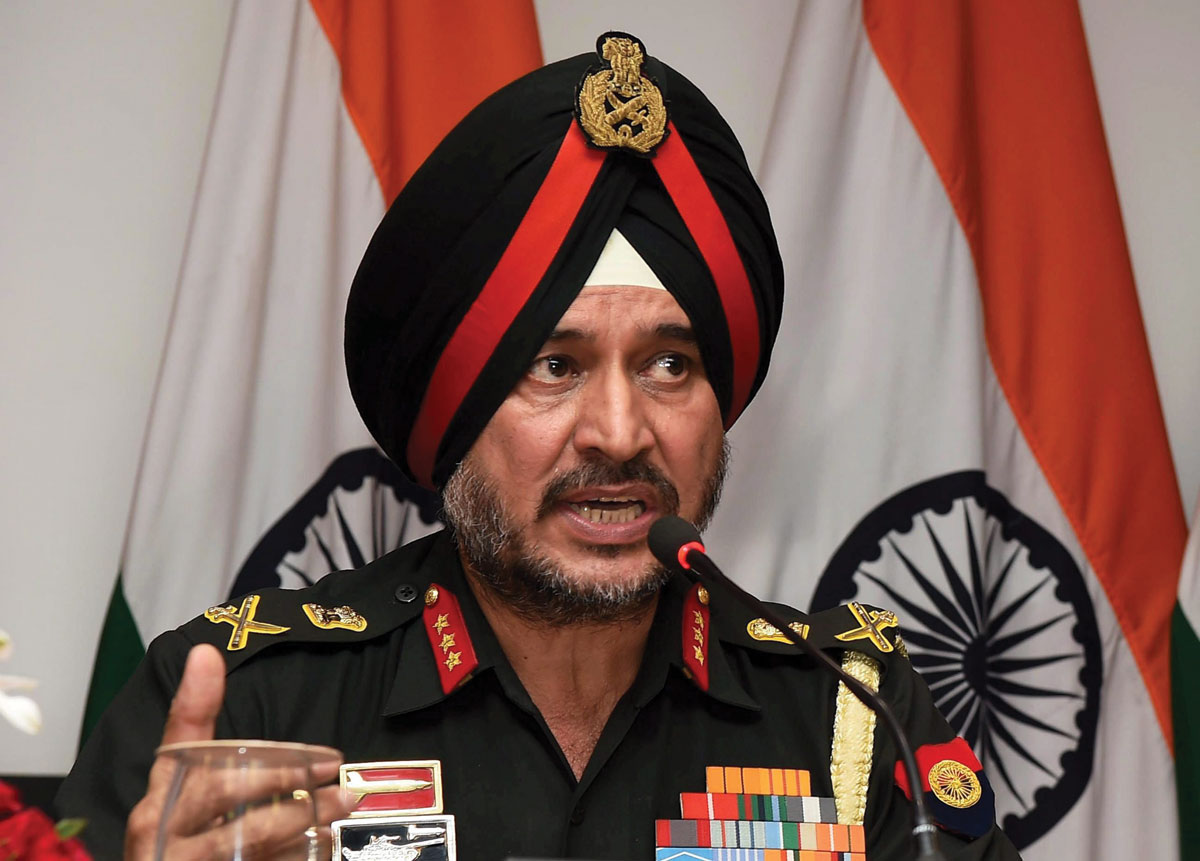URI ATTACK AVENGED, INDIA STRIKES BACK AT TERRORISTS
Director General Military Operations Lt. Gen. Ranbir Singh addresses a press conference along with External Affairs Spokesperson Vikas Swarup (not seen in photo) in New Delhi, Sept. 29. India conducted Surgical strikes accross the Line of Control in Kashmir, the previous night. (Shirish Shete/PTI)
India has avenged the terror attack about ten days after four Pakistan-based militants struck at the highly guarded army installation at Uri, Kashmir. It took lightening swiftness of a handful of army-men to conduct ‘surgical strikes’ in Bhimber, Hotspring, Kel and Lipa sectors beyond the Line of Control in Pakistan-occupied Kashmir to inflict heavy casualties on terrorists and “those protecting them,” writes Priyanka Bhardwaj. – @Siliconeer #Siliconeer #India #Pakistan #NAMO #NarendraModi #IndianArmy #IndiaconductsSurgicalAttacks #SurgicalAttacks #IndoPakRelations #FightingTerror
India’s DGMO Lt. Gen. Ranbir Singh briefed the media that Pakistan was apprised of the surgical strikes by “ghatak” platoons of its Bihar and Dogra army regiments. He added, although New Delhi has no intentions to continue with the operations, it expects any reaction from Islamabad.
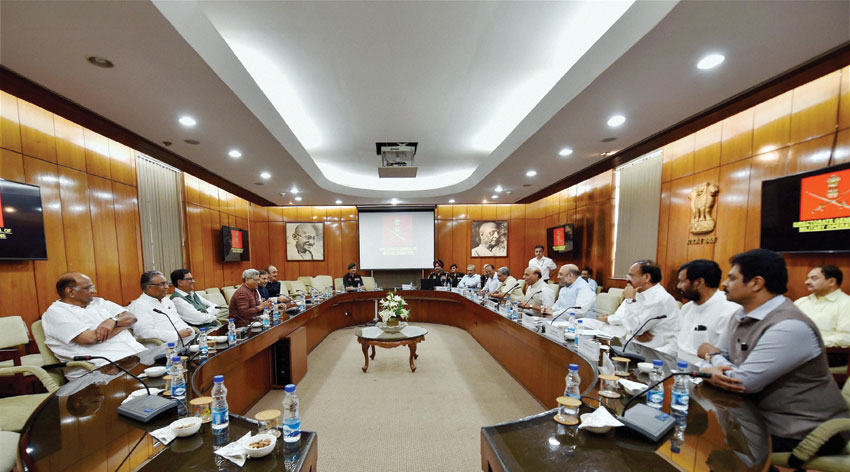
“During these counter terrorist operations, significant casualties have been caused to the terrorists and those who are trying to support them.
“The operations aimed at neutralizing the terrorists have since ceased. We do not have any plans for continuation of further operations. However the Indian armed forces are fully prepared for any contingency that may arise,” he said.
“It is India’s intention to maintain peace and tranquility in the region, but we can certainly not allow the terrorists to operate across the Line of Control with impunity and attack the citizens of our country.
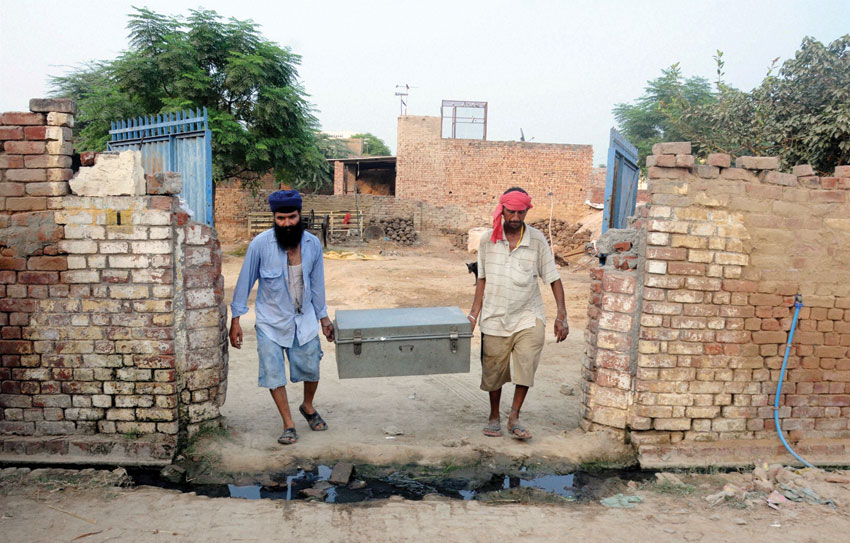
“In line with Pakistan’s commitment made in January 2004 not to allow its soil or territory under its control for any terrorist activities against India, we expect the Pakistani army to cooperate with us with a view to erase this menace of terrorism from our region,” he added.
The operation lasted four hours starting half an hour past midnight, Sept. 28, when paratroopers from Special Forces were airdropped by helicopters at the LoC from where they deliberately ventured about 3 kilometers into the PoK to destroy 7 terror launch pads and kill thirty-eight terrorists, guides and handlers, and two Pakistani soldiers.
Surgical strikes in the common parlance are defined as military operations undertaken by forces on the offensive, to hit enemy targets and installations on basis of precise information, and return to primary positions, all with immense speed but with as minimum collateral damage in terms of infrastructure, civilians, etc., as possible.
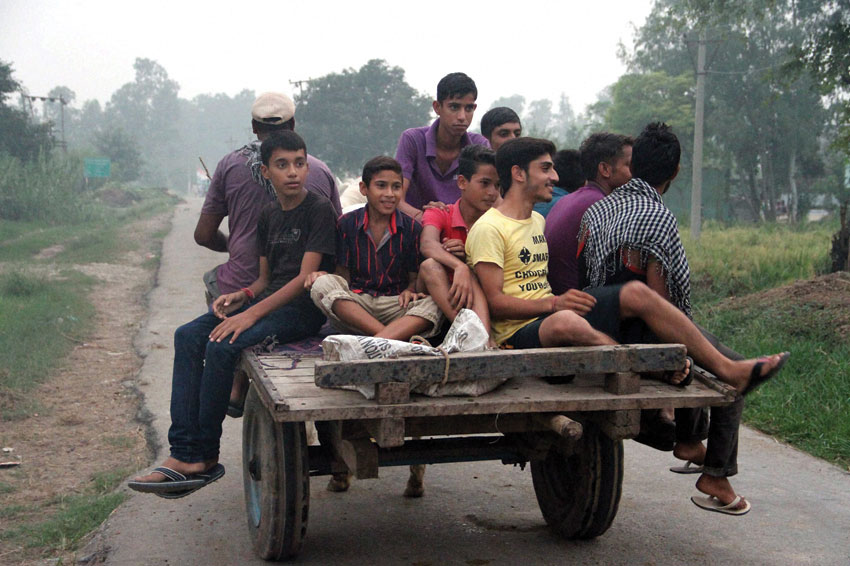
With the spurt in infiltration bids along LoC even after the Uri-attack and reception of specific information that terrorists had begun gathering in large numbers along the LoC with the aim of crossing the border and targeting locations in the state of Jammu and Kashmir, and other parts of India, New Delhi was left with limited options of securing its borders and its people.
The build up to this operation was of course the Uri attack, similar to the previous Pathankot attacks, when terrorists killed 18 soldiers and grievously injured many more before being gunned down by the armed forces.
From markings on multiple belongings of the perpetrators, investigators had confirmed their identities as members of a “fidayeen” or suicide squad of the banned Pakistan-based militant outfit Jaish-e-Mohammad.
Founded by Maulana Masood Azhar, who was arrested by India’s security agencies in Srinagar in 1994 on charges of terrorism and then released during the Taliban regime at the Kandahar airport, in Afghanistan, in exchange for passengers of hijacked IC-814 Indian Airlines airplane, this organization has overtaken the infamous Lashkar-e-Toiba in infiltrating borders along Line of Control and carrying out suicide attacks.
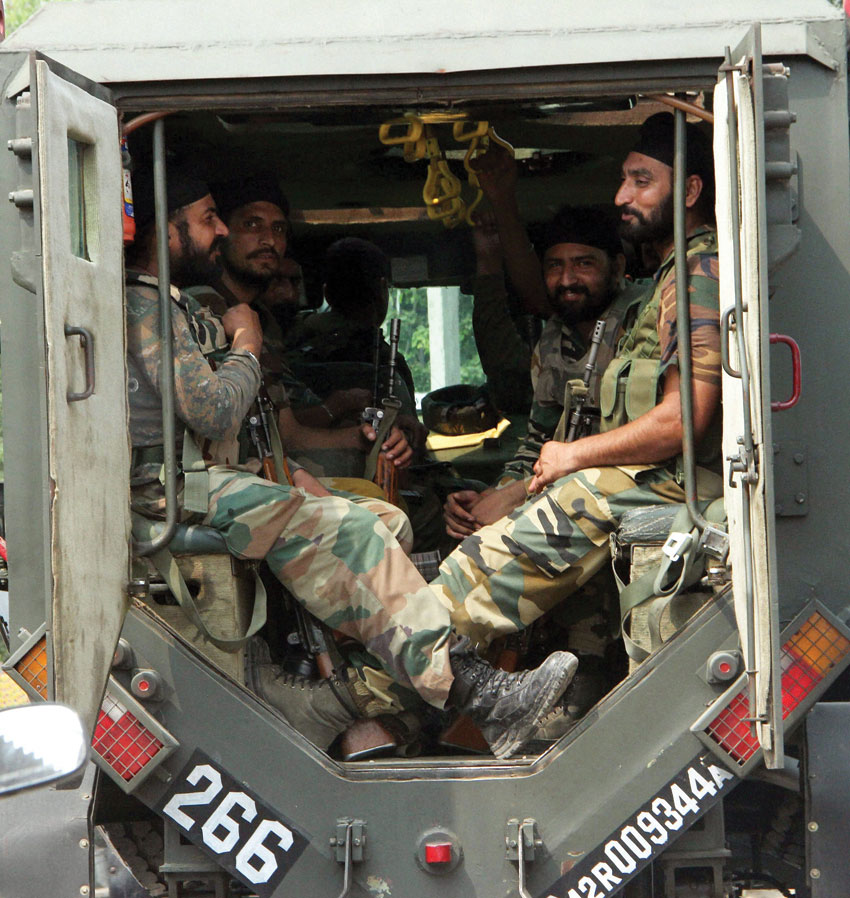
At the 2014 rally in Muzaffarabad in Pakistan-occupied Kashmir, Azhar had declared “revenge of a magnitude which cannot be imagined” and soon thereafter the nefarious activities of the group gained in scale and impact.
Memories are still fresh of its first ‘fidayeen’ attack that was undertaken in 2000 by a 15-year-old boy who blew himself up in front of the Army’s 15 Corps HQs in Srinagar, and the dare devil Parliament attack of December 13, 2001.
For an outfit that was reduced to just about eight cadres in mid-2013 by the Jammu & Kashmir Police, the recent series of defiant attacks on Indian army bases at Mohra and Tangdhar in north Kashmir, at Kathua and Samba in Jammu region, and at Pathankot airbase in Punjab has been a lethal comeback of sorts.
While expressing seriousness of the government in tackling terrorism, Indian Defense Minister Manohar Parrikkar had sought to dismiss the tall claims of “nuclear preparedness” by Islamabad as “empty threats.”
The corridors of power had maintained a silence on the exact response-strategy the Narendra Modi government would adopt but for sure no war to stave off worse threats.
But in a marked departure from past, the government had not just conveyed its deepest sense of displeasure along with proofs to the Pakistani envoy stationed at New Delhi, but had pulled all diplomatic guns targeted at isolating Islamabad at the world stage.
At various meetings of the United Nations in Geneva and New York India’s sharpest ever castigation of Pakistan reflected its resolve to push for having Pakistan recognized as a nuclear proliferating and terrorist state that nurtures terror groups as militant proxies against its neighbors.
Accusing it of turning the once famous “Land of Taxila (an ancient seat of learning) into an “Ivy League of Terrorism,” Indian diplomats reminded the world leaders of the roots of 9/11 attack in U.S. that led to Pakistan, the tracking down of Osama bin Laden to Abbotabad, a Pakistani military garrison, and threw light on Islamabad’s internal tensions, its democratic deficit, and role in Baloch genocide, aided with American funds originally meant for eradicating terror.
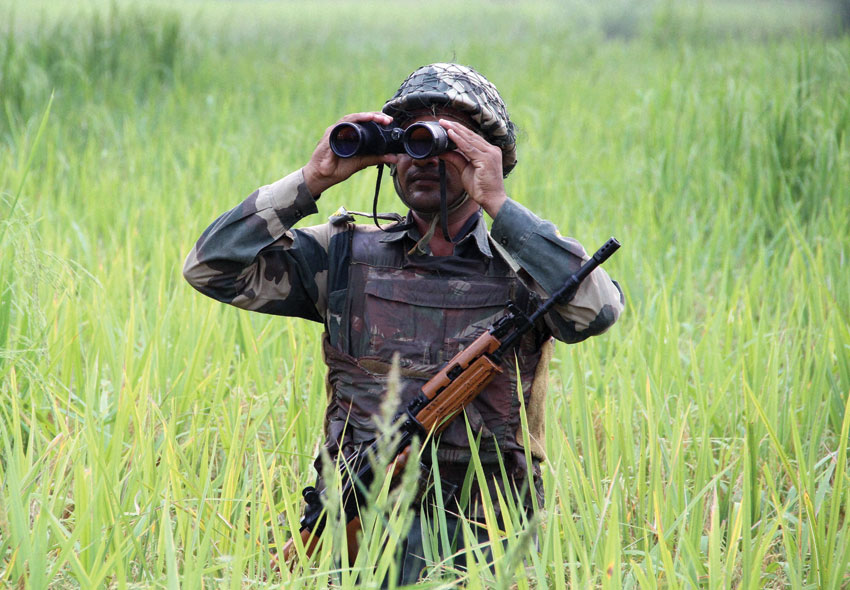
Not unscathed from the scourge of terror the Western powers – United Kingdom, France and the United States – have shown solidarity to India by condemning the Uri attack and bearing pressure on Pakistan to cooperate with India in investigations and announcing a will to come down on any state-supported terror in the world.
Amid accelerating tensions between the two South Asian neighbors, Pakistan’s deteriorating relations with other SAARC countries, its growing reputation as a terrorist hub besides its proliferation record, the U.S. government had asked Islamabad to cap its nuclear weapons program but which was rejected by Pakistan on grounds of a “Cold Start” by India.
According to this doctrine India can initiate surgical strikes across LoC to destroy military installations and occupy enemy territory much before the world can react, and in case of occupied territories it may enjoy an upper hand on the post-conflict resolution table.
However, Pakistan in all foolhardiness appears to have been missing the cue as its Prime Minister, Nawaz Sharif, at the United Nations, constantly harped on Kashmir and eulogized gun-toting terrorists as martyrs without even once mentioning the issue of gross human rights violations amounting to genocide in Balochistan.
A while ago he even audaciously sought Tokyo’s support for membership of the Nuclear Supplier Group.
Islamabad has a dubious distinction for proliferating technology to the rogue North Korea, under the patronage of China, all of which poses an existential danger to Japan.
Pakistan’s overplaying of its cards of sponsoring terrorism and getting away with it may come to an end as two determined U.S. lawmakers, Dana Rohrabacher and Ted Poe, Chairman of the House Subcommittee on Terrorism have moved a legislation, HR 6069, the Pakistan State Sponsor of Terrorism Designation Act, in the House of Representatives to designate Pakistan an untrustworthy ally and a terrorist state.
For the passage of this bill, the U.S. India Political Action Committee too has begun canvassing among the local legislators.
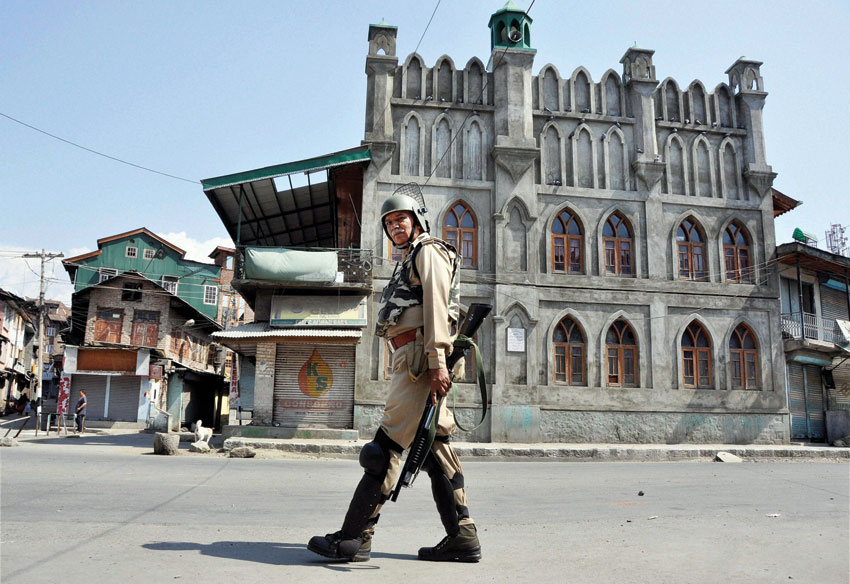
The Indian-American community in the U.S. is also said to have launched a White House petition that reads, “This petition is important to the people of United States of America, India and many other countries which are continuously affected by Pakistan-sponsored terrorism.”
The petition needs a minimum of 100,000 signatures to qualify for a response from the Obama Administration.
In the current environment of receding trust there also have been calls to abrogate or at best dilute the components of the 1960 Indus Water Treaty, signed by New Delhi and Islamabad for the sharing of waters of Indus and other rivers, to send clear signals of India’s leverage in the water system.
Another option to exert pressure on the adversary could be for India to align with the Western neighbor of Pakistan, that is Afghanistan, by way of creating a dam or barrage on the Kabul River that flows into Pakistan through the Indus basin.
Never before has India enjoyed such support amongst its neighbors, Afghanistan, Bangladesh and Sri Lanka as they have backed New Delhi by boycotting the regional SAARC summit that was to be hosted by Pakistan.
The western world too has thrown its weight behind India in uniting against Islamabad as it is widely recognized for exporting of terrorism.
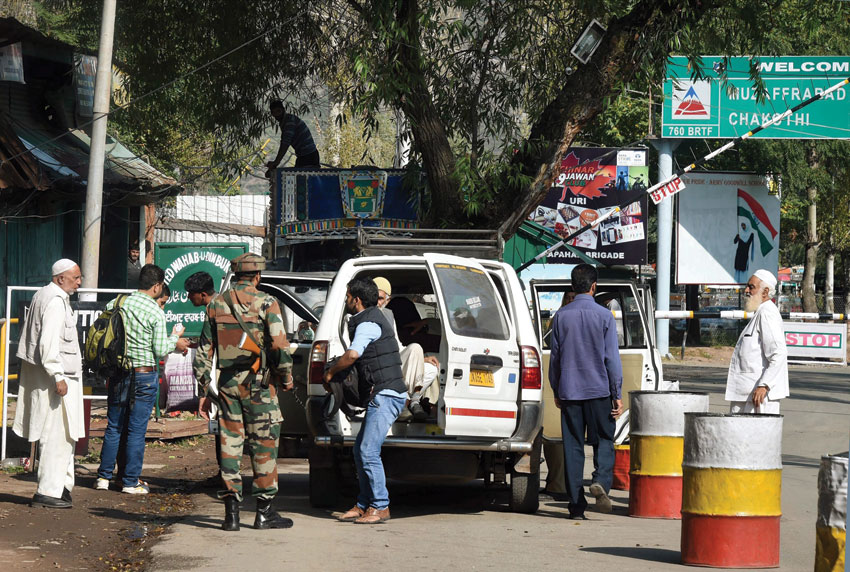
With a huge market for Chinese imports India has a good amount of negotiating space with Beijing as well.
Evidently for Islamabad that is threatened with the Baloch independence movement besides its economic chaos, matters are very precarious.
At home (in India) the opposition parties especially the Congress, has fully supported Modi’s dispensation in its surgical strikes to tackle terror while it stays in full watch of the center on how it fixes accountability for procedural and investigative lapses.
Exigencies pertaining to ramifications of terror and the government’s responses to it on the domestic matrix may be contributory factors for the practice of discretion as the better part of valor over the unleashing of a “matching retaliation” against Islamabad.
But with Modi enjoying a huge mandate and overwhelming popular appeal clamoring for a befitting reply to the actors and countries threatening the peace and stability of the world’s largest democracy, he has delivered his “measured combat reply” to terrorists.
It is time Pakistan appreciated once and for all that India’s tolerance, as enshrined in its constitution, does not extend to terror.
